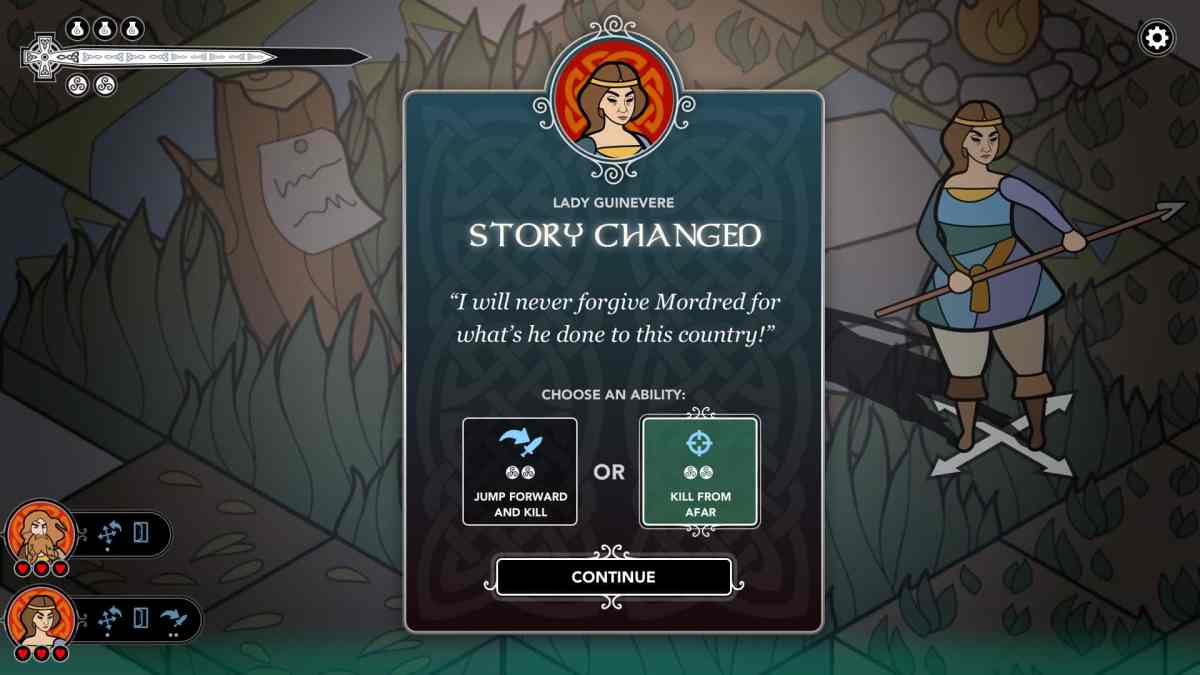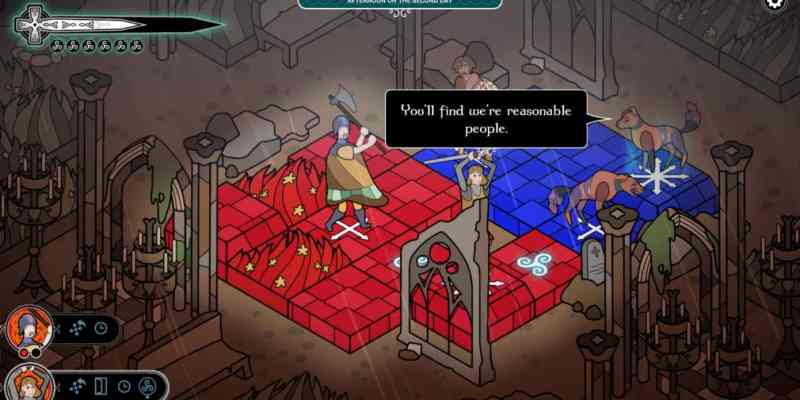I played through 10 beginnings, 10 journeys, and 10 endings, yet that feels like just the tip of the Pendragon iceberg. Once, the demo ended with a healthy Sir Lancelot. Another time, with Queen Guinevere grievously injured by a bear. One of my characters fell to a wolf, another to a knight. My heroes attacked peaceful villagers and spoke to unfriendly hounds. They gained and lost companions.
I feel like I could keep playing the Pendragon demo for days or weeks — hell, maybe even until the full game launches — before seeing every scenario. I know I won’t get bored if I do.
Pendragon isn’t “fun” in the party game sense, but it feels and plays reminiscent of chess, delivering the joy of facing challenges and thinking your way through them. This feeling is a bit of a hallmark for developer inkle; if you ever played 80 Days, you’ll probably remember how a lack of planning could make the round-the-world journey longer and more difficult than necessary. Here, though, the attention shifts from inventories and itineraries to the more familiar gaming territory of strategic battle.

Pendragon is an Arthurian tale of noble knights and powerful ladies. The player’s goal is to move from one corner of a tiled board to another, eliminating or avoiding any threats on the way. Normally, only one tile can be moved at a time, and attacks can only land on adjacent squares. However, characters can also skip tiles that they own, while a host of special powers and conditions liven things up. What seems straightforward quickly proves to be anything but, and the AI is fully capable of taking advantage of a lapse in judgment. A quick death and it’s back to the character select screen to start the journey afresh.
Despite the battles being thoroughly engaging though, the story is the centerpiece of the experience, as is the norm for inkle. Nonetheless, battles are central in pushing the narrative forward, as characters converse while dancing around the board.
Meanwhile, non-combat boards help to weave a world tapestry. A knight errant, ferryman, or roughshod villager will share their thoughts, air their grievances — give body to a country riven by conflict. In those areas, we find a glimpse of inkle’s subtext — of how the team is using the past to reflect on the present — but it is subtle. If nothing else, it certainly colors the world.
Some familiarity with the Matter of Britain will benefit Pendragon players, but it’s hardly necessary. With impressive brevity and clarity, the game conveys the broad strokes of Camelot, the breaking of the Round Table, and the upcoming final contest between King Arthur and Mordred at Camlann. While only Queen Guinevere and Sir Lancelot are available in the demo, each has a treason in the past and a reason to fight. With 10 playable characters set to appear in the final game, players are sure to find someone to root for.
In addition to a shortage of characters to be seen in the final game, campfire tales for which the team ran a public competition and the map enabling players to choose their journey are also missing in the demo. Yet it’s clear to see how those inclusions will enrich the experience.
If, coming off the back of 80 Days or Heaven’s Vault, you have concerns that inkle might struggle with creating more involved gameplay, set them aside. The tactical elements are finely honed, if rather simple. Beyond that is a story that is subtle, deep, and compelling from a team at the height of its skill. Even more impressive is the way narrative proceduralization (which was all written by hand, not an algorithm) keeps each playthrough feeling fresh without losing any clarity or consistency. The Pendragon demo on Steam is just a taste of what is to come, and what a taste it is.
